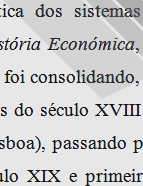

................................
Despite being unable to continue his secondary education due to his father's death in 1857, Oliveira Martins engaged in diverse occupations, including commerce, managing a mine in Spain (Santa Eufémea, Córdoba), overseeing the construction of the Porto-Póvoa railway, and drafting the Inquérito Industrial [Industrial Survey of 1891] (Northern Region). Politically, he served as assemblyman for Viana do Castelo, administrator of the tobacco "monopoly", and Minister of Finance (for four months in 1892).Oliveira Martins was not only a distinguished writer and intellectual, but also an eminent historian, not due to extensive archival research but through his stylistic prowess, creativity, and bold interpretations of the Portuguese historical reality, significantly influencing future generations of researchers (such as João Lúcio de Azevedo, António Sérgio, and Vitorino Magalhães Godinho). He viewed the historiography of his time with pessimism, considering it to be moribund since the publication of Herculano's História de Portugal (Oliveira Martins, "Notas sobre a historiografia em Portugal," [Notes on historiography in Portugal] 1972, p. 604). Among his notable economic works are A circulação fiduciária [Fiduciary circulation] (1878), Política e Economia Nacional [National Politics and Economy] (1885), and Projecto de Lei do Fomento Rural [Rural Development Bill](1887). The latter, presented to Parliament, benefited from the advice and contributions of his friend Alberto Sampaio. In these and other works, Oliveira Martins addressed a wide range of topics, including emigration and agricultural development, industrialisation and development, property, and fiduciary circulation. Alberto Sampaio (1841-1908) was also a prominent figure in this period's historiography. The significance of his work has been increasingly recognised, particularly since the commemorations of the 150th anniversary of his birth (1841-1991) in Guimarães (Actas…[Proceedings...], 1995) and the centennial of his death (1908-2008), during which his works were re-edited (Sampaio, 2008). After completing his preparatory studies, Sampaio went to Coimbra University to study law, following in his brother José Sampaio's footsteps. Upon graduating in 1863, he moved to Lisbon to work but soon returned to his native Minho, dissatisfied with his experience in the capital. In the initial phase of his career, he completed his education through reading, travel, press collaboration, and other activities (including organising and promoting the 1884 Industrial Exhibition in Guimarães), working in the Banco do Minho, and interacting with personalities such as Antero de Quental, Oliveira Martins, Martins Sarmento, Luís de Magalhães, Eça de Queirós, and Teófilo Braga.
